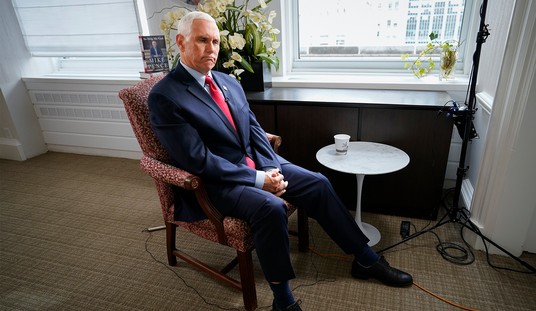The new movie Unplanned tells the harrowing and inspiring story of Abby Johnson, a former Planned Parenthood abortion clinic director who became a pro-life activist. The film is equal parts terrifying and inspiring. It shows the horrors of abortion and the grace of Jesus Christ, how evil abortion is and how even a person complicit in over 22,000 abortions can find redemption.
Johnson, played to perfection by Ashley Bratcher, volunteers with Planned Parenthood in college, convinced by a recruiter that America’s largest abortion provider aims to decrease abortions and give women more control over their own bodies.
This young woman also had not one but two abortions. In college, she dated and later married a man named Mark. When she got pregnant, he sent her to a clinic where she spent $500 to “get it done.” She was one in a line of girls and remembered the pain in her abdomen.
Mark cheated on Abby Johnson, so she divorced him, but she was pregnant again. This time, she paid $400 for an RU-486 abortion pill.
This leads to one of the truly gruesome scenes in the movie. The poor girl starts bleeding, moaning in pain, and vomiting violently. The audience sees blood flowing down her leg, her throwing a blob — the baby — into the toilet, and the poor girl writhing in pain. “After 12 hours in agony, I fell asleep on the bathroom floor. It occurred to me that this was the way I was going to die,” Johnson tells the audience.
After this horrible experience, Johnson’s volunteer work became her career. She finds love and chooses to have a child.
At one point, her boss Cheryl (Robia Scott) takes her into the “holy of holies,” the POC room — where POC stands for “products of conception.” In that room, Planned Parenthood staff went through the bodies of aborted babies to make sure no limbs, heads, or other body parts were missing.
Cheryl praises Abby Johnson. “Little baby body. Other people, the first thing they do? They cry. But not you. That’s how I know,” she tells Johnson. Cheryl promotes her to clinic director.
After work one day, the office threw Johnson a baby shower. “After terminating 38 pregnancies in the space of four hours, we spent two hours celebrating mine,” she recalls.
Johnson not only becomes director of her abortion clinic, she wins Planned Parenthood’s employee of the year award. Shortly after that, however, management tells her to expand the number of abortions, to “double last year’s totals on surgical abortions.”
When she complains, she hears, “abortion is what pays your salary.” Cheryl, now a director of the organization, tells her, “Now, I didn’t say anything when you decided to get married and I didn’t say much when you decided to become a mother,” but “we are an abortion provider.”
After helping out in one particularly harrowing abortion, Johnson decides she’s had enough. “I saw that it moved, and it was like it was twisting and fighting for its life,” she tells the audience. The scene shows a pregnant woman on a table, a plastic tube, and blood flowing through the tube. The audience sees the baby on ultrasound as it dies.
Gruesome scenes like this earned the film an “R” rating. This rating is fitting, because abortion is horrific to witness. But Americans need to see the unvarnished truth about what happens inside Planned Parenthood clinics.
At one point, pro-life protesters deliver a powerful message. “Slavery, segregation, and the Holocaust, that can only occur when a whole section of the population is dehumanized, and that’s exactly what Planned Parenthood does to the unborn,” the pro-life Christian Shawn (Jared Lotz) tells Johnson.
Eventually, Abby Johnson becomes a believer in the humanity of unborn children. Broken, she comes to the pro-life Christians who pray outside of her clinic.
“I have been complicit in over 22,000 abortions. That is the weight of my guilt. How do I even begin to comprehend that?” she asks. The movie presents a powerful story of redemption. Johnson places her faith in Jesus Christ, and finds forgiveness and peace.
After a tense legal battle, the film closes on a hopeful note. Pro-life activists gather to remember all the babies killed by Planned Parenthood, and to pray for the bereaved mothers and fathers who lost their children to abortion.
Unplanned is an excellent expose of Planned Parenthood and abortion, and an inspiring film for all Americans to see. In an era when pro-abortion activists push increasingly radical legislation, it is important for Americans to see what abortion really is, how dangerous it can be for women, and how even Planned Parenthood clinic directors can find redemption from this evil.
I heartily recommend this movie, but I do have to warn that it is gruesome and disgusting. Americans should steel themselves to witness some of the very worst in humanity, and some of the very best.
Follow Tyler O’Neil, the author of this article, on Twitter at @Tyler2ONeil.









Join the conversation as a VIP Member